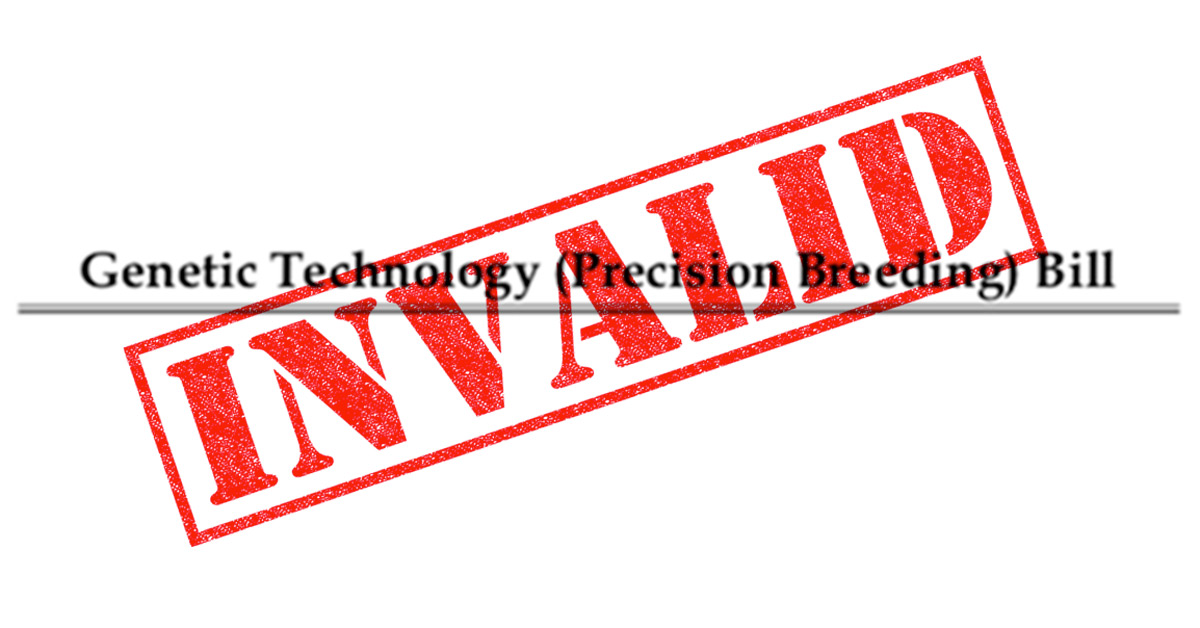
GMWatch publishes response to the Genetic Technology (Precision Breeding) Bill
On 25 May the UK government introduced into Parliament the first draft of the "Genetic Technology (Precision Breeding) Bill",[1] which aims to remove almost all regulatory controls, including in-depth risk assessment and labelling, of most types of genetically modified (GM) crops, farm animals, and foods.[2]
GMWatch warns that the Bill, if passed without major Amendments, will create a GMO free-for-all, putting at risk public health and the environment.
From the standpoint of science, the Bill is a fabrication based on dishonesty and a determination to dismiss years of peer-reviewed findings on the effects of gene editing and other new GM technologies.
The people who are most culpable in the production of this Bill are the scientific advisors to the government. They are entrusted by the public to act in an objective and impartial manner and stay true to the science. Yet they appear to have acted in complete contradiction to established scientific understanding. The only possible motivation seems to be economic interests and a political wish to align the food and farming sectors of England with those of the USA and other GMO-producing countries.
The Bill is accompanied by an Impact Assessment.[3]
The Bill and Impact Assessment are deeply problematic, as they cast aside the interests of public health and the environment and raise animal welfare concerns in the rush to smooth the path to market for new experimental GM crops and animals.
Claire Robinson, director of GMWatch, and molecular geneticist Dr Michael Antoniou have laid out their concerns with the Bill and have proposed Amendments. Their response is published here and it lays out the many reasons for concern in easy-to-follow detail.[4]
Claire Robinson commented, "The fact that we are proposing Amendments doesn't mean we accept the validity of this Bill – it is an insult to democracy, transparency, and science and should be opposed outright from the start. However, it's important that we identify specific aspects of the Bill that are problematic so that those who are in a decision-making capacity are informed about its worst fault lines."
Notes
1. https://publications.parliament.uk/pa/bills/cbill/58-03/0011/220011.pdf
2. The criteria for these exempted genetically modified organisms (GMOs) are that every feature of its genetic makeup (genome) could have resulted from “traditional processes” or “natural transformation”. It calls these exempted GMOs “precision bred organisms”.
3. https://publications.parliament.uk/pa/bills/cbill/58-03/0011/ImpactAssessmentGeneticTechnology(PrecisionBreeding)Bill.pdf
4. https://gmwatch.org/en/uncategorised/20051










